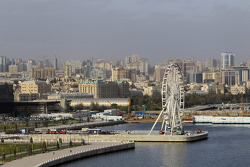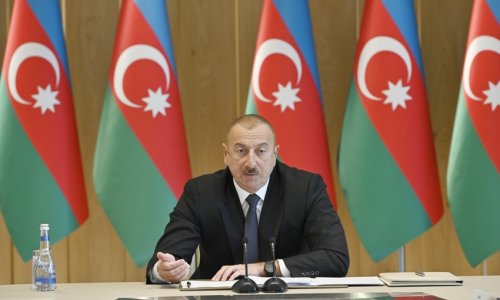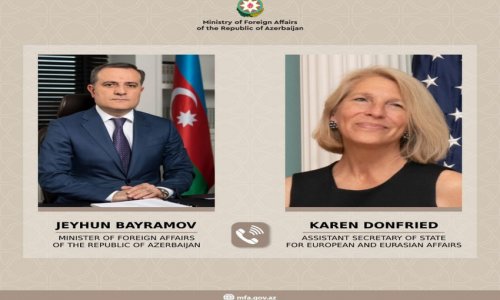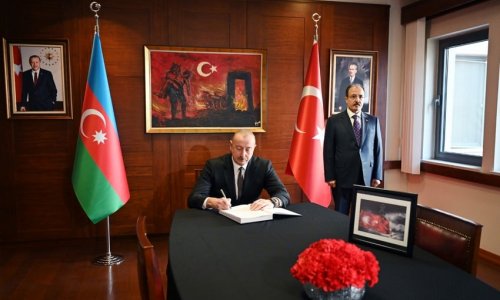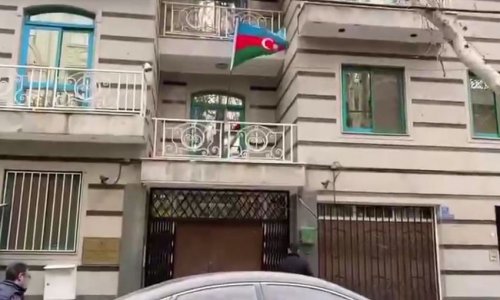By Choe Chong-dae
The Republic of Azerbaijan, located in the South Caucasus region of Eurasia with access to the Caspian Sea, is a dynamically developing country with an abundance of natural resources, in particular its rich deep-water oil reserves.
My interest in this country dates back to an official visit by Korea's then-President Roh Moo-hyun in 2006 and Azerbaijani President Ilham Aliyev's reciprocal visit to Korea in 2007.
It is noteworthy that Korean archeological teams from Seoul National, Chungbuk National, Kyungpook National and Hanshin universities undertook joint excavations with a group of archeologists from the Azerbaijan National Academy of Sciences' Institute of Archeology and Ethnography in Gabala, from 2009 to 2011. The archeological excavations took place primarily at the site of the ancient city of Gabala, located in the territories of Selbir and Gala, which was the ancient capital of Caucasian Albania for eight centuries.
Approximately 1,500 priceless artifacts were discovered during the excavation, shedding light on entirely new chapters in the history of Gabala.
Remarkably, the excavated artifacts, such as glassware, ornaments, beads and pottery, were very similar to antiquities unearthed in Gyeongju from the Silla Dynasty (57 BC to 935 AD).
This indicates that ancient Azerbaijan engaged in cultural contact with the Unified Silla Kingdom via the ancient Silk Road. When the Silk Road Gyeongju Cultural Festival was held in Gyeongju in August 2015, a sister city partnership between Gyeongju and Gabala was established which aimed to rebuild and foster the historic cultural relations between the two countries, originally linked by the ancient Silk Road.
The two countries share many similarities in terms of history, culture, traditions and, in particular language as both tongues are members of the Altaic language family. Additionally, Azerbaijani suffered similar birth pangs to Korea when the country gained independence.
Specifically, a great number of Azerbaijanis were sacrificed during the Soviet troops' violent two-day crackdown on independence demonstrations, later known as the "Black January" massacre, which took place in Baku, Azerbaijan on January 19 and 20, 1990.
During these days, hundreds of Azerbaijani civilians were crushed or injured by Soviet troops, on a direct order from the USSR which was trying to maintain control of Azerbaijan. About 26,000 Soviet troops entered Baku and committed atrocities against the innocent people of Azerbaijan who were struggling to establish the ideals of freedom and sovereignty in order to preserve the nation's territorial integrity. Some 133 civilians of Azerbaijan lost their lives and 800 were wounded at that time. This atrocity evoked a deep sense of anger and indignation in progressive forces all over the world, which contributed to the prompt collapse of the Soviet Union in 1991.
Black January was a potent display of cultural pride and heroism on the part of the Azerbaijani people, qualities evident in this culture since time immemorial. On this occasion, its aim was to resist cruel attacks on the freedom and independence of their nation, paving the way for the national liberation of Azerbaijan.
While attending a commemoration ceremony in Seoul on the 26th anniversary of Black January, held on Jan 20 and hosted by the Embassy of Azerbaijan, I felt as if I were present at a ceremony commemorating the March 1 Independence Movement of 1919, which sought a restoration of Korean sovereignty from Japanese occupation (1910-1945). Although their historical circumstances differ, the two events and their memorial celebrations were remarkable similar.
In view of the longstanding ties between Korea and Azerbaijan, my fervent wish is that the two countries' relationship will be increasingly strengthened so that both countries can continue to contribute to peace throughout the world through vibrant cultural exchanges.
NOTE: Choe Chong-dae is a guest columnist of The Korea Times. He is president of Dae-kwang International Co., and a director of the Korean-Swedish Association. He can be reached at [email protected].
www.ann.az
Follow us !

